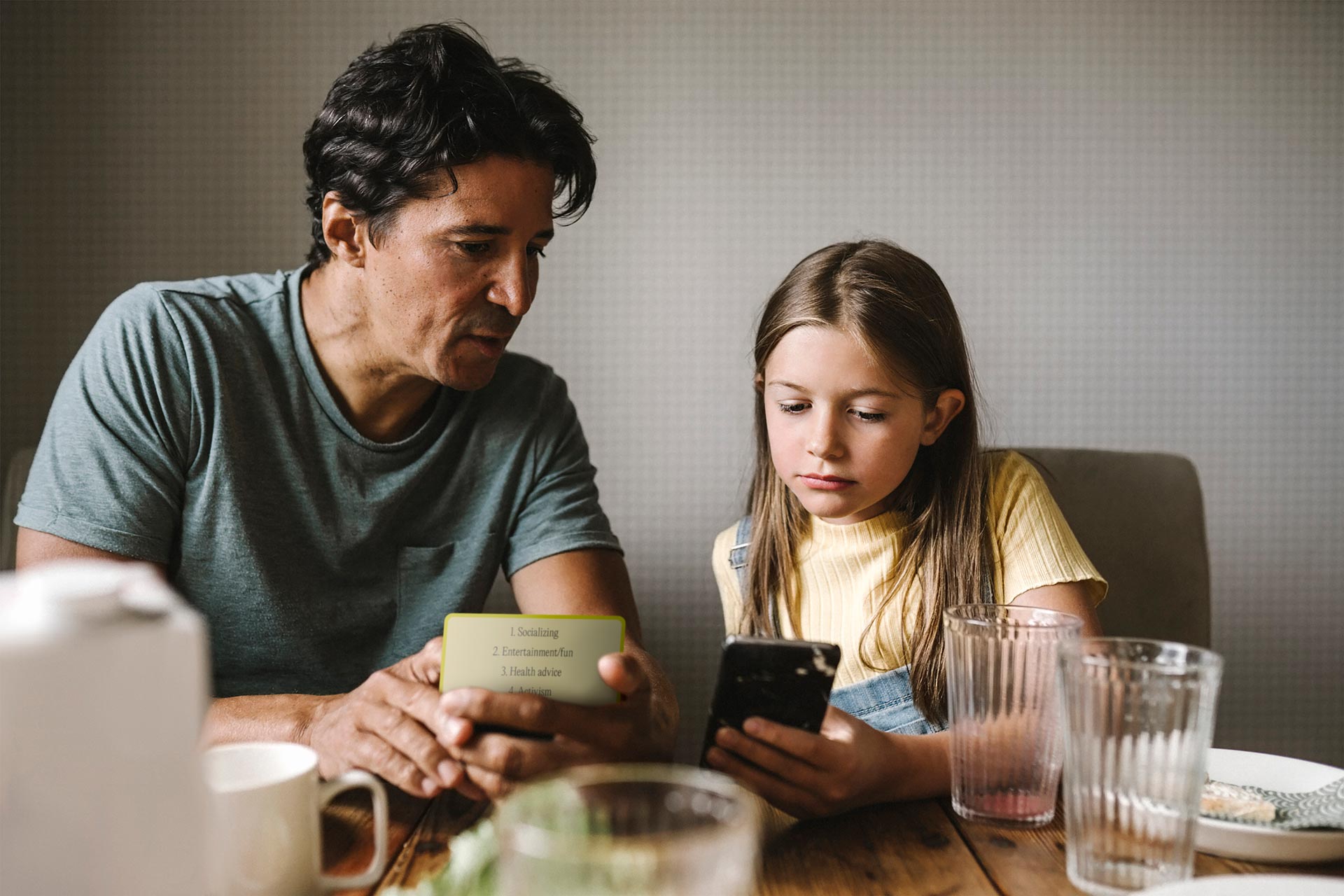What Is Digital Empathy and Why It Matters Today
Empathy is the ability to put yourself in someone else’s shoes, see what others see, and feel what they feel.
It is one of the single biggest factors that contributes to improved relationships, reduces bullying, makes better managers and leaders, and improves wellbeing. Digital empathy is just as important for managing relationships, and yet, it’s something we don’t often talk about.
The feeling of belonging is fundamental to humans. It is part of our basic need to survive, and when it feels threatened, it has numerous negative effects. This is also true for the digital world, and it’s very real for children.
Empathy helps create and maintain belonging. This is why talking about good online communication with our children and fostering digital empathy is crucial to help avoid misunderstandings. It is very difficult to “read” people’s emotions when you can’t see them in person to interpret tone, body language, and meaning.

We won’t always have the answer to every question, and that’s ok.
Having conversations and modeling empathic behavior is hugely important. Parents are the first example of empathy, so it’s a big responsibility. Many cultures are inherently individualistic, which is something to be aware of. This can naturally lend itself to more boundary and conflict issues.
The conversation cards’ purpose is to take these issues head-on and discuss them. That means: how to spot and handle cyberbullying, how to respect your own and others’ boundaries, being able to take healthy conflict, and knowing when it’s time to say “no” or go to an adult.
We won’t always have the answer to every question, and that’s ok. The conversation process is a way for us to learn about our children’s perspectives and how they think, feel, and see things. This knowledge will help us understand them and be more empathic, too.
Tips for empathy in the digital world
Tune in
Every child is different, so make sure to tune in. Some kids have a harder time communicating, then the cards might take longer. You may need to use simpler language that they can understand. Some children are more easily distracted, so we may need to do fewer cards at a time. The more we tune in and meet our child where they are, the more they will absorb and learn.
Watch judgment
Pay attention: How judgmental are you of yourself and others? This includes your children, their friends, other parents, etc. Just being more aware of your language can make an enormous difference for your children online and offline.
Kids mirror their parents so our example matters
Practice digital empathy
Practice looking for meaning behind online behavior with your child. Maybe their friend had a bad day, couldn’t write back immediately, or didn’t use the right emoji.
Rather than judge negatively and assume the worst, let them learn to take some time to cool down and reflect before writing comments or sending sms. Kids mirror their parents, so our example matters, and this will be reflected in their interactions, drama, and friendships.
Be vulnerable
Being vulnerable is proven to be one of the most connecting things we can do. If your child calls you out on your digital behavior, which isn’t in line with the family values, for example, own up to it.
When you are vulnerable and admit when you make mistakes, you can apologize, or say that you don’t always know the answer, you show your kids that you are human. This also lets them know that they can come to you when they do the same.
Acknowledge your child
Even if you know the answer, acknowledge what your child says first. ”Oh that’s interesting..”. “hmmm, I didn’t think of that. What do you mean?” “So you would…? Do you think you could also….?” “So you would write and ask if she was mad? What if your friend doesn’t write back, do you think you could also call?”
By recognizing their ideas first and then helping to consider more options, they learn to trust their instincts. Very often, children will come up with their own answers rather than those listed on the cards. This can be one of the most interesting learning experiences for us as parents when we genuinely see and hear things from their perspective.





